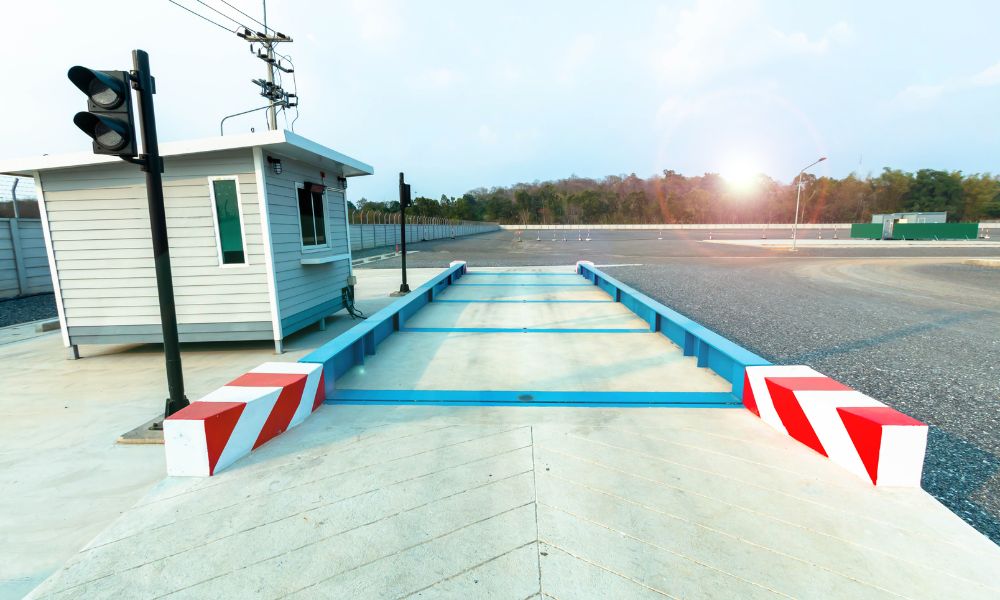Industrial and commercial weighing systems are essential for maintaining accuracy, operational efficiency, and legal compliance. Whether you’re using platform scales in a warehouse, truck scales at a logistics hub, or precision balances in a lab, reliability is key. However, like all mechanical and electronic equipment, scales can develop issues over time—and neglecting regular maintenance only accelerates the problem.
In this blog, we’ll explore the most common issues that affect industrial and commercial scales, and explain how routine servicing helps prevent downtime, extend lifespan, and ensure accurate measurements.
1. Calibration Drift
What It Is:
Calibration drift refers to the gradual loss of accuracy in a scale’s readings over time. Even if the scale was properly installed and initially calibrated, its accuracy can deteriorate due to factors like:
-
Daily wear and tear
-
Environmental changes (temperature, humidity)
-
Movement or relocation
-
Power fluctuations
-
Mechanical stress or overload
How Servicing Helps:
Regular calibration by trained technicians ensures your scale remains within acceptable tolerance limits. During servicing, test weights certified to national standards are used to verify and adjust the scale’s performance. This not only prevents misreadings and costly product loss but also ensures compliance with legal-for-trade requirements if applicable.
2. Load Cell Damage or Failure
What It Is:
Load cells are the heart of any electronic scale, converting force (weight) into electrical signals. Over time, they can suffer from:
-
Corrosion or moisture ingress
-
Mechanical overload
-
Wiring issues or disconnections
-
Shock or impact damage
Even minor issues in load cells can result in inconsistent or erratic readings, or complete system failure.
How Servicing Helps:
Routine servicing includes thorough inspections of load cells and wiring for signs of damage or stress. Technicians can clean and reseal cells, replace faulty components, and test for uniform load distribution—ensuring continued accuracy and performance.
3. Mechanical Wear and Tear
What It Is:
Scales with moving parts—especially large platform or truck scales—are prone to mechanical degradation. Bearings, pivots, base plates, and mounts can become worn or misaligned over time, leading to:
-
Uneven weight distribution
-
Noisy operation
-
Delayed or inaccurate readings
-
Risk of structural failure
This is especially common in environments with heavy equipment, forklifts, or exposure to dirt and debris.
How Servicing Helps:
Professional servicing involves inspecting and lubricating mechanical components, tightening fasteners, aligning mounts, and removing debris from hard-to-reach areas. This prevents long-term damage and maintains safe, accurate weighing conditions.
4. Display and Interface Malfunctions
What It Is:
The scale’s digital display or terminal interface can develop problems such as:
-
Flickering or unreadable screens
-
Faulty keypads or touch inputs
-
Communication errors with software or printers
-
Data lag or transmission failures
These issues are often caused by aging components, exposure to dust or moisture, or power surges.
How Servicing Helps:
Routine service includes diagnostics on all electrical components and connectors. If needed, software can be updated, terminals replaced, and connectivity checked to ensure smooth operation between the scale and other systems like inventory software or label printers.
5. Environmental Exposure
What It Is:
Many industrial scales are used in harsh or unpredictable environments, including:
-
Outdoor applications with rain, heat, or snow
-
Food processing areas with constant washdowns
-
Dusty warehouses or corrosive chemical exposure
Without proper protection, these conditions cause scale degradation, rust, and electrical shorts.
How Servicing Helps:
Regular service visits include environmental assessments, cleaning of sensitive components, resealing junction boxes, and recommending protective solutions like enclosures or weatherproof kits. This not only protects your equipment but also improves long-term reliability.
6. Legal Non-Compliance
What It Is:
For scales used in trade, it’s critical that they meet certification standards (like NTEP in the U.S.). If your scale has drifted from certified tolerance or lacks documentation, you could face:
-
Fines and penalties
-
Loss of business trust
-
Failed audits or inspections
How Servicing Helps:
Scheduled servicing ensures that all required calibration certificates and inspection records are up to date. Many professional service providers offer compliance support and can guide you through regulatory updates, audits, or recertification processes.
Why Preventive Maintenance Pays Off
Preventive maintenance isn’t just about avoiding breakdowns—it’s about maximising performance, protecting your investment, and keeping your business running smoothly. Here’s what you gain with regular servicing:
-
Reduced downtime due to fewer emergency repairs
-
Lower maintenance costs over time
-
Improved weighing accuracy, reducing costly mistakes
-
Extended equipment lifespan
-
Greater employee confidence and efficiency
-
Legal peace of mind from full compliance
If you’re operating in California’s Central Valley, it’s essential to partner with a local expert who understands your environment and operational needs. Trust experienced providers of industrial scale services Fresno to keep your systems running smoothly and reliably.
Conclusion
Scales are silent workhorses in many industries—but like all equipment, they need care to perform consistently. From calibration drift and sensor damage to mechanical wear and display errors, most common scale issues can be avoided or caught early with regular professional servicing.
Don’t wait for your weighing system to fail. Invest in preventative maintenance and partner with trusted professionals offering industrial scale services in Fresno and beyond. Your scale will last longer, perform better, and help you stay compliant, competitive, and confident.
